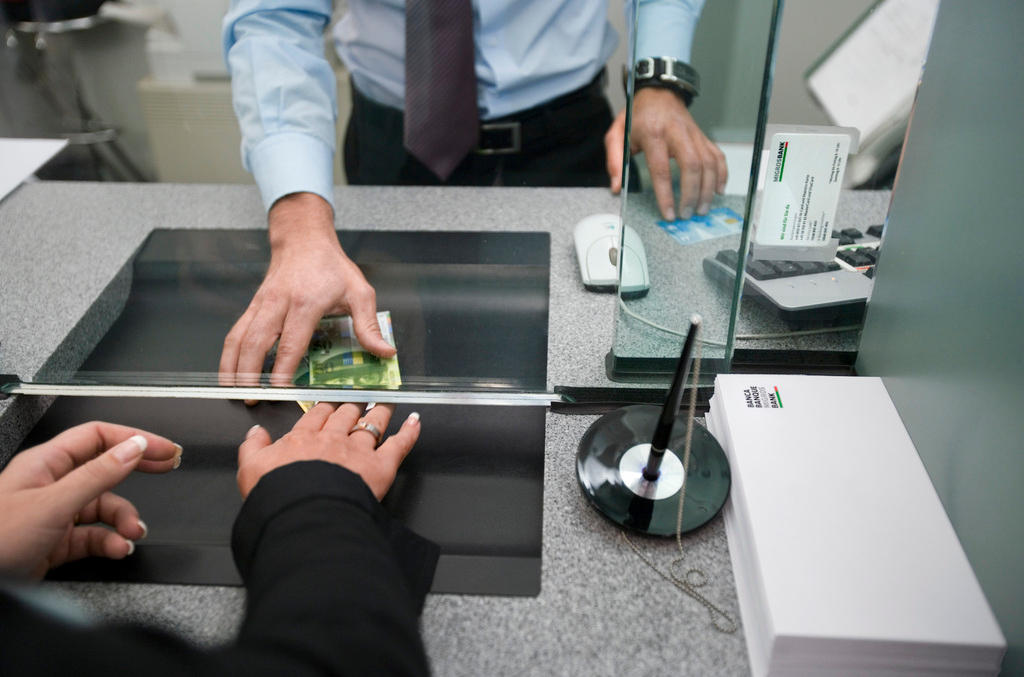Regulation on ICOs inconsistent as crypto bubble fears grow

When celebrities known more for reality shows than financial prowess start endorsing a particular investment strategy, it is fair to assume a bubble exists.
And so it is with initial coin offerings, a virtual way to raise cryptocurrency funds. Stars including socialite Paris Hilton, actor Jamie Foxx and boxer Floyd Mayweather have all taken to social media to claim they are backing cryptocurrency fundraising.
ICOs work by a company issuing tokens, typically in exchange for a cryptocurrency such as Ethereum. Tokens can be used to buy future services from the issuer or can be sold on.
There have been 211 ICOs through October this year, raising a total of $3.5 billion (CHF3.4 billion), according to data from Coinschedule, an ICO information provider.
This is closely correlated to the soaring value of cryptocurrencies: bitcoin’s value has leapt from $997 to $8,150 so far this year: an increase of more than 700 per cent.

More
Financial Times
External linkWith the siren-call of high returns, punters – and celebrities – are piling in. Which is what worries regulators. But whether they have the ability to do much depends on whether they apply rules – often decades in the making – to an innovation that is months old.
“It is a bit of a patchwork” says Simon Toms of law firm Allen & Overy, contrasting the draconian approach of China, which banned ICOs in September, to the self-confessedly “permissive” regulations of the Isle of Man.

More
Crypto piggybank foundations proliferate in Zug
It helps to separate approaches taken around the world into three broad buckets, says Kari Larsen, an attorney at Reed Smith and a former US regulator.
First, there are the countries that have outlawed ICOs – such as China or South Korea – or those like Vietnam that ban payments in cryptocurrencies, which has a knock-on effect on ICOs. Also included would be countries with mixed messages, such as Russia, where senior officials have made positive remarks about cryptocurrencies but where strong data protection laws that could hamper ICOs also exist.
In the second category are jurisdictions that have put out the welcome mat for ICO issuers: Gibraltar, the Cayman Islands, Mauritius and the Isle of Man. Not coincidentally, they are the traditional big offshore financial centres “and want to continue to be the leading offshore financial centres,” explains Ms Larsen.
The majority of developed economies with a strong regulatory framework comprise the final group: the US, the UK and the rest of the European Union, Hong Kong, Canada and Australia.
This third category all have longstanding securities laws and rather than banning ICOs, they have reminded issuers that those laws – some dating back generations – could apply to innovations such as ICOs. They have also warned consumers on the risks of such highly speculative investments and that some could be just old-fashioned scams.
- Bans: China, South Korea, Vietnam (Russia – no outright ban but data laws make it difficult)
- Fans: Gibraltar, Isle of Man, Cayman Islands, Mauritius
- Wary: US, UK and European Union, Hong Kong, Canada, Australia, Singapore, Switzerland
Unsurprisingly, with a long history of pursuing white-collar offences, the US is at the forefront. The Securities and Exchange Commission’s July report on a company called DAO – whose fundraising backfired spectacularly when a hacker made off with a third of its assets – was the first salvo that ICOs could fall under its watch and stringent rules. In four short months since then, the SEC has filed the first ever ICO fraud charges, and earlier this month put celebrities on notice that ICO endorsements could breach anti-touting rules.
More worryingly for issuers, the US Department of Justice is actively scrutinising ICOs, which could mean criminal penalties are looming, according to Kathryn Haun, the DoJ’s first crypto “tsar” who is now on the board of Coinbase, a digital-currency platform.
She forecasts that DoJ will pick its maiden ICO case carefully, choosing “most likely a case of pure fraud or a blatant and wanton violation of securities laws rather than a situation that may be a closer call.”
The full force of the SEC is invoked when tokens issued during ICOs are legally a security, rather than vouchers to be exchanged within a limited community. That is determined by a Supreme Court evaluation dating back to 1946 called the Howey test, which analyses whether investors are purchasing some kind of promise with an expectation of profit. If so, issuers have to comply with rules on registration, transparency and investor marketing that the SEC oversees.
“You can call it a coin or a potato, or whatever you want, but it’s the substance that regulators will look at,” says Mr Toms of Allen & Overy.
The UK – never far behind the US in recent years – has so far stuck to warning consumers that they should be prepared to lose all their investment. But the Financial Conduct Authority is also weighing whether celebrity endorsers could be breaching longstanding rules on giving consumers fair and complete information.
This third category are also united in stressing the extra-territoriality of their laws. “Limiting to non-US investors only works if an issuer verifies those investors are actually non-US investors, and even then laws like Dodd-Frank have expanded the extraterritorial reach of securities laws,” explains Ms Haun.
The approach of Singapore and Switzerland is particularly interesting as both are considered welcoming of ICOs. The head of Singapore’s regulator said it wants to welcome “good” ICOs, while Zug – the Swiss canton known for commodity traders – is now dubbed “Crypto Valley”. About $600 million was raised through ICOs by Swiss-based issuers this year, according to Forbes.
But both the Monetary Authority of Singapore and Switzerland’s Finma in recent weeks have followed other regulators by issuing warnings. Finma went as far as to threaten enforcement action against ICOs that had deliberately flouted securities regulation and anti-money laundering rules, stressing it had a number of ICOs under review.
Ms Larsen also anticipates greater regulatory scrutiny on the Swiss-based foundations that often sit above ICOs. A prime example of such a foundation is that which controls the finances of Tezos, the venture that undertook one of the largest-ever ICOs only to erupt into a corporate-governance battle that has sparked the first ICO class-action lawsuits.
And class actions, legal experts predict, could have as much of a chill as regulatory action.
Shrinking success rate
Four years since the launch of Mastercoin, the first initial coin offering, crypto-crowdfunding truly took off in 2017, raising $3.5 billion so far this year – about 3,500 times more than in 2016. But the question industry watchers are asking is: will the projects that landed big ICOs succeed or fail?
More than a third of ICO funds raised this year have gone to projects building and improving the nascent blockchain universe’s infrastructure, according to tracker Coinschedule.
This year’s biggest ICO in dollar terms was Filecoin, whose simple concept – letting computer-owners rent out their unused digital storage space – scored $257 million for its team from research group Protocol Labs this September.
But few ICOs did so well, with only five raising more than $100 million. Hype around the newly discovered fundraising method started attracting lower quality projects, to what became known as the “wild west” of investing.
Data released this week by tracker TokenData.io shows that of 2017’s 587 launched ICOs, only 54 per cent have successfully closed. As the year went on, the quarterly proportion of successful ICOs shrunk – from 88 per cent in the second quarter, down to 42 per cent so far this quarter.
Of the incomplete ICOs, 31 per cent went “unreported”, meaning the team behind the sale failed to disclose how much they actually raised. 15 per cent “failed” – token buyers were refunded, or the sale’s website disappeared.
Originally published at FT.comExternal link

In compliance with the JTI standards
More: SWI swissinfo.ch certified by the Journalism Trust Initiative














You can find an overview of ongoing debates with our journalists here . Please join us!
If you want to start a conversation about a topic raised in this article or want to report factual errors, email us at english@swissinfo.ch.